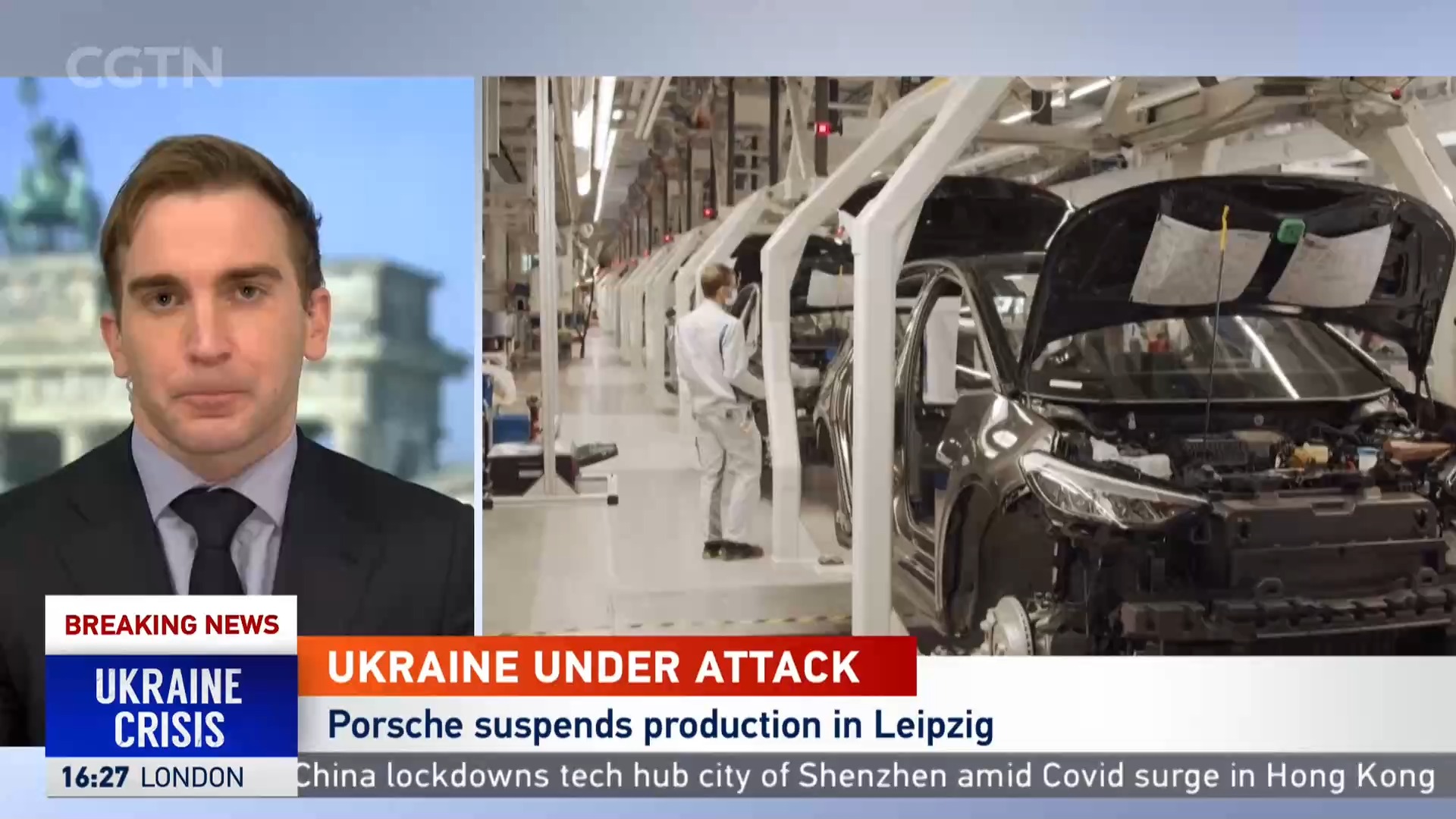01:18

Germany's automotive industry is facing increased production pressures as Russia's invasion of Ukraine triggers supply chain problems across Europe.
BMW, Mercedes-Benz, and Volkswagen have all been forced to slow production at several German factories in recent weeks. Porsche, part of the Volkswagen Group, had to temporarily suspend output entirely at its Leipzig factory because of supply shortages.
Cars are Germany's biggest export, and an existing global semiconductor shortage was already weighing heavily on the industry before the conflict in Ukraine erupted.
READ MORE
Nuclear plants 'Not designed to withstand attacks'
Ukraine conflict timeline
50 years of UK-China relations
Halting sales to Russia
The industry has also responded to Russia's military attack by halting local production and stopping sales in the country.
"The Volkswagen Group has received the news about the war in Ukraine with great dismay and shock," VW said in a statement.
"Against the background of the Russian attack on Ukraine and the resulting consequences...Volkswagen has decided to stop the production of vehicles in Russia until further notice. This decision applies to the Russian production sites in Kaluga and Nizhny Novgorod."
The company has joined BMW and Daimler in also halting sales to Russia.

The logo of Daimler's Mercedes-Benz luxury-car division is pictured on the roof of a building in Moscow, Russia. /Reuters/Maxim Shemetov/File Photo
The logo of Daimler's Mercedes-Benz luxury-car division is pictured on the roof of a building in Moscow, Russia. /Reuters/Maxim Shemetov/File Photo
Car parts in short supply
Carmakers are also struggling to acquire crucial wire harnesses needed to manufacture vehicles. Many of the producers that supply German factories are based in Ukraine - where the war has shuttered operations.
Similarly, Ukraine is a major global supplier of neon gas, which is used in semiconductors. A long-running conflict would likely lead to a growing scarcity of neon and, in turn, exacerbate the semiconductor shortage.
In comments to the Financial Times, Volkswagen CEO Herbert Diess said a prolonged conflict would be "very much worse" for Europe's economy than the coronavirus pandemic.
"[It] could lead to huge price increases, scarcity of energy, and inflation," he added.
Nationalization threats
Foreign car companies that have shuttered operations in Russia could risk having their Russian property nationalized by the state. The ruling party, United Russia, announced that a commission has approved in principle a proposal to nationalize the assets of firms more than 25 percent owned by foreigners from "unfriendly states."
Mercedes-Benz said in its latest annual results it has $2.2 billion in assets that could be threatened by the proposals, including a factory in Esipovo, north of Moscow. The Esipovo factory produces E-class sedans and SUVs and employs over 1000 people.
Price rises for critical materials including copper and aluminum are also likely to hit drivers - with carmakers expected to pass increased costs onto customers.

